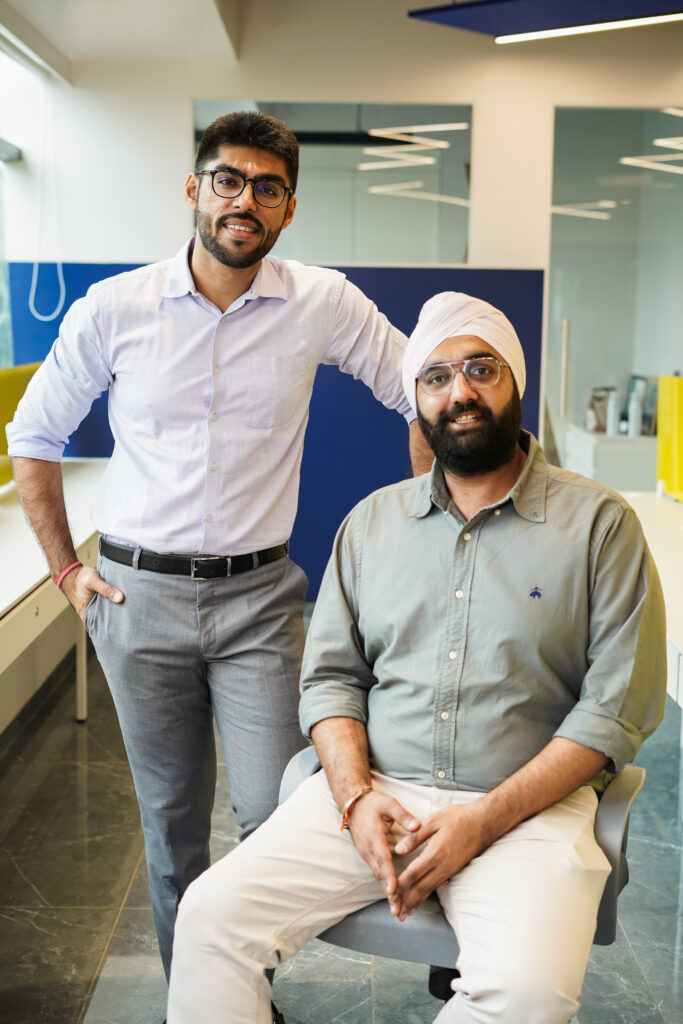
Part 5 of Tech That Matters
In 2016, thick smoke from a fire at Mumbai’s Deonar landfill reached the skies and caught NASA’s eye. For many, it was a shocking image. For Rahul Nainani and Gurashish Singh Sahni, it was a turning point as they saw more than just flames. They saw a country drowning in trash and a system with no accountability.
The duo believed waste could become a resource if handled the right way, turning belief into action, and soon into a mission. They launched RaddiConnect to link households with nearby recyclers. But as they worked, they saw deeper problems. No one was tracking where waste went. The informal workers were underpaid and unprotected. Brands didn’t know if their waste was handled properly. That’s when ReCircle was born — with a bigger plan and a stronger goal.

In this week’s Tech That Matters segment, we explore how ReCircle is turning India’s trash into a clean-tech circular economy.
A Clean-Tech Startup With a Circular Vision
ReCircle is a clean-tech company based in Mumbai. It is building India’s circular economy by recovering waste, using technology, and empowering communities. In less than a decade, ReCircle has diverted over 169,000 metric tonnes of waste from landfills and oceans. It has worked across more than 300 Indian cities. It supports over 3,500 waste workers and partners with over 200 collection teams and 20 processing units.
The startup’s goal is clear. It wants to ensure that no resource is wasted. And it wants to make the people handling that waste — India’s Safai Saathis — respected, trained, and fairly paid.
A Big Problem Hiding in Plain Sight
India is one of the largest producers of plastic. Yet the country still imports over 4.65 billion plastic bottles every year. Most of them are never recycled. They end up in drains, oceans, or dumped in growing landfills.
ReCircle is trying to stop this trend by closing the loop. That means taking waste that would normally be thrown away and putting it back into the economy. Whether it’s plastic, paper, glass, old footwear, or even textile waste, ReCircle collects, sorts, and sends it where it can be reused, recycled, or repurposed.
Tech That Sees What Others Miss
At the center of ReCircle’s clean-tech system is a powerful tool called ClimaOne. It’s not just a tracking platform — it’s the brain of the operation. Every time waste is picked up, ClimaOne logs it. The system uses geo-tags to show where it’s collected, who processed it, and where it ends up.
ClimaOne gives brands real-time dashboards to track their plastic waste. It helps them meet Extended Producer Responsibility (EPR) rules set by the government. It also provides full proof of recycling, backed with data. With this system, waste becomes traceable. And traceable waste becomes valuable.
This has helped ReCircle partner with major companies like Hindustan Unilever, Starbucks, Dabur, and Metro Shoes. Each partnership turns more waste into opportunity.
From Old Shoes to New Impact
One of the most impactful projects came through a partnership with Metro Shoes. Together, they collected 1,300 tonnes of old, discarded footwear. These shoes, which usually end up in landfills, were turned into energy or recycled materials. The process was documented and verified at every step.
ReCircle also ran major collection drives during Diwali and Christmas. These drives collected over 34 tonnes of waste from homes and offices. They didn’t just clean up — they helped people see waste differently.
People First, Always
ReCircle knows that technology alone can’t solve the problem. People make the real change. That’s why the company has focused on improving the lives of India’s waste workers.
As a result, over 91 percent of ReCircle’s Safai Saathis say they earn more than before. About 63 percent say they’ve improved their skills. Many of them are women who now have safer workspaces, gloves, jackets, and health benefits. At ReCircle’s material recovery facilities, workers sort, clean, and track every item of waste. And they do it with dignity.
What’s Next for ReCircle?
ReCircle is expanding its work into new sectors. Textile waste is the next big focus. India produces over 7 million tonnes of textile waste every year. ReCircle is building a new Textile Recovery Facility to tackle this growing problem.
The company is also planning to upgrade ClimaOne with new features and build a state-of-the-art recycling facility. This will help them process more waste directly and with even better traceability.
Their long-term goal is to become India’s most trusted partner for waste recovery and EPR compliance. But the mission goes deeper than that. ReCircle wants to inspire every Indian to see waste as something with value.
Why This Story Matters?
ReCircle is not just for big brands or waste experts. It is for students learning about sustainability. For families wanting cleaner neighbourhoods. For workers looking for safer jobs. And for companies aiming to build greener businesses. With every piece of waste they recover, ReCircle is creating value. This is the kind of tech India needs.
This story is a part of our weekly series on tech innovations that matter!
